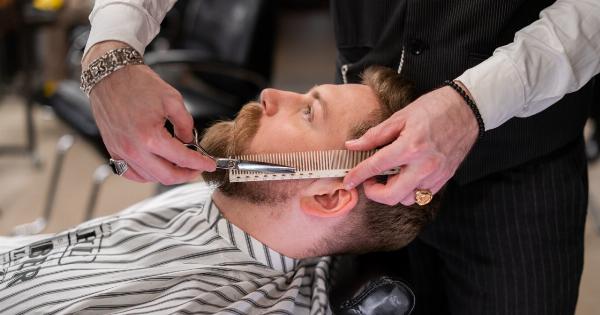The hipster culture has been around for quite some time now, with the term being coined back in the 90s.
This alternative, non-mainstream way of life has always been characterized by a few key elements – unique fashion choices, a love for artisanal goods, and a generally laid-back, bohemian vibe. However, there’s a new foe on the horizon that is threatening to knock the hipster culture off its pedestal – hair loss.
The Hipster culture
The hipster culture is defined by a desire to be different from the mainstream. Hipsters frequently embrace non-conformist fashion styles, often incorporating vintage pieces, heavy on patterns, textures and colours to create unique looks.
They enjoy indie rock music, art-house films, and craft beers.
The Hipster hair-do
One of the tell-tale signs of a hipster is their hair. For the men, the hairstyle of choice is often a man bun or a top knot, while the women often opt for a messy, undone bob or long, flowing locks.
These hairstyles have become almost emblematic of the hipster culture, with many individuals choosing to grow their hair long and style it in an unconventional way.
What is hair loss?
Hair loss is a common condition affecting many individuals worldwide. It is a natural part of the hair growth cycle, with individuals shedding up to 100 strands of hair a day.
However, excessive hair loss can be a cause for concern and may indicate an underlying health condition.
Causes of hair loss
There are several potential causes of hair loss, including genetics, age, hormones, and medical conditions such as thyroid problems, autoimmune disorders or Alopecia areata, a condition in which hair falls out in patches.
Stress, poor nutrition, certain medications, and even some hairstyles can also contribute to hair loss.
How hair loss affects hipsters
For hipsters, hair is almost like a badge of honour. Their unique hairstyles are often seen as a defining feature of their identity, and they take great pride in their hair.
As such, the prospect of hair loss can be especially concerning for members of this subculture.
Preventing hair loss in hipsters
While there is no single way to completely prevent hair loss, there are various steps that hipsters can take to reduce their risk of losing their luscious locks. These include:.
- Eating a balanced diet rich in vitamins and minerals, especially biotin and zinc, which are vital for healthy hair growth.
- Avoiding hairstyles that put excessive strain on the hair, such as tight braids or weaves.
- Avoiding the use of harsh chemicals and heat styling tools, which can damage the hair and cause it to break or fall out.
- Using gentle shampoos and conditioners that are free from sulfates and parabens, which can strip the hair of its natural oils and cause dryness and breakage.
- Managing stress levels through practices such as yoga or meditation.
Treatments for hair loss in hipsters
If hair loss has already occurred, there are several treatment options available that can help to restore hair growth. These include:.
- Medications such as minoxidil and finasteride.
- Hair transplant surgery.
- Scalp micropigmentation.
- Laser therapy.
- Platelet-rich plasma (PRP) therapy.
Conclusion
While hair loss may be a concerning issue for hipsters, it is important to remember that it is a normal part of life for many individuals and is not something to be ashamed of.
By taking proactive steps to prevent and treat hair loss, hipsters can continue to rock their unique hairstyles and keep their cool factor intact.






























